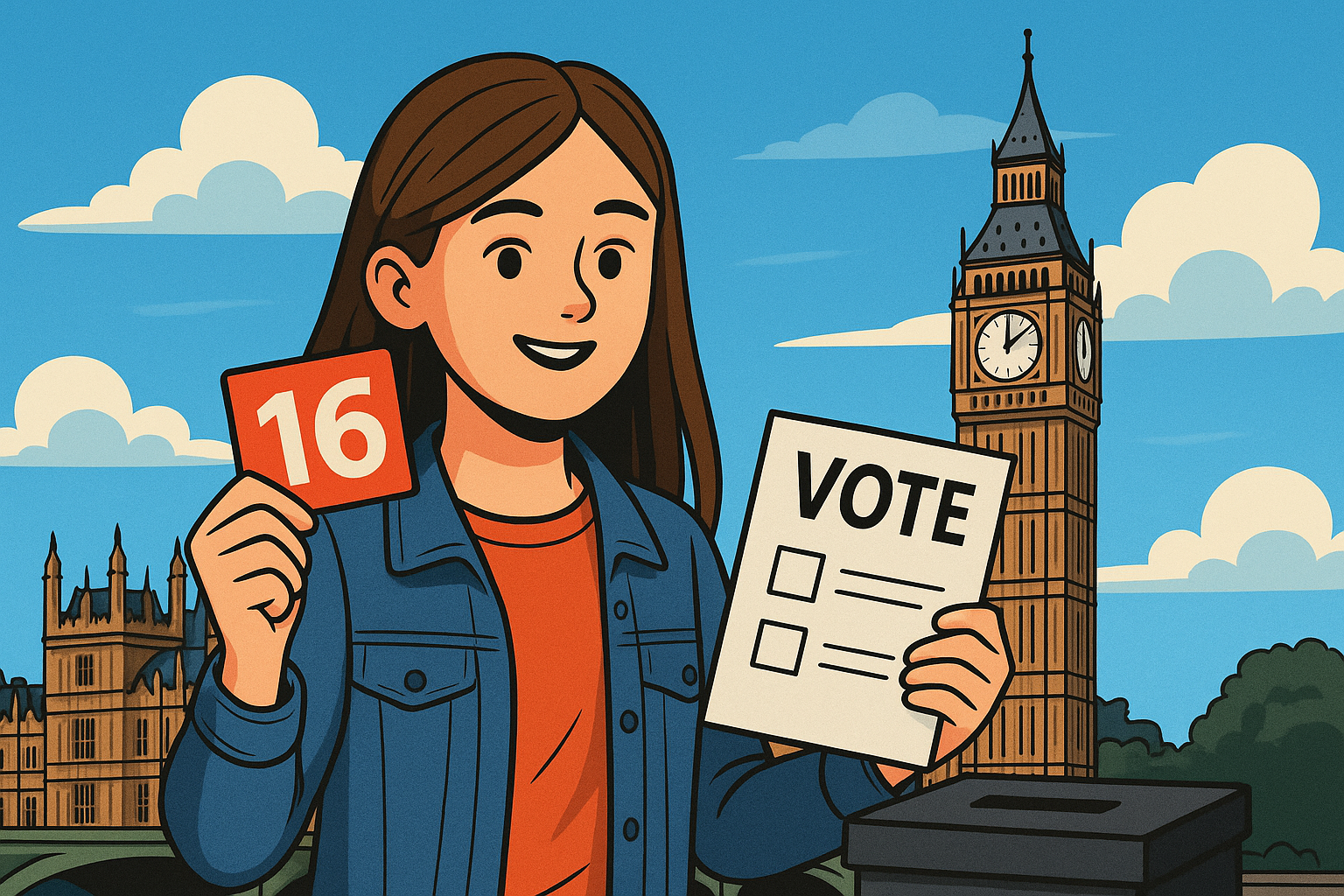I still remember turning 18. There was so much buzz around it—friends saying “You’re an adult now!”, the flood of birthday cards with jokes about finally being legal, and this quiet pressure that I was suddenly meant to have it all figured out. But honestly? I didn’t feel like an adult. Not really. And years later, I still wonder if we’re rushing young people into adult life before they’re truly ready.
This week, the UK government made a bold and unexpected move—lowering the legal voting age from 18 to 16. It’s a historic change, one that immediately places hundreds of thousands of teenagers into the heart of national politics. But while some are celebrating it as a win for youth empowerment, others (myself included) are asking a bigger question: are we really sure 16 is the right age for grown-up decisions?
Adulthood Comes With Heavy Lifting
At 18, you’re legally allowed to vote, sign a mortgage, join the army, get married, and be held fully responsible in a court of law. That’s a lot. Yet when I think back to myself—or any of my friends—at 18, we were barely out of school, still leaning on parents or carers for advice, guidance, and sometimes money. We were still figuring out who we were.
It feels a bit like giving someone the keys to a car before they’ve really learned to drive.
There’s a reason for that. Scientists say the brain doesn’t fully mature until around 25, especially the parts that help with planning, impulse control, and managing emotions. So if our brains are still under construction, why are we expected to make such massive decisions—at 18, let alone 16?
16 and Voting: A Step Forward or Too Far, Too Fast?
Don’t get me wrong—I think young people should be engaged in politics. Most of the 16-year-olds I’ve met are sharp, opinionated, and incredibly aware of the world around them. Some are more politically informed than adults twice their age. But that doesn’t mean they’re all ready to cast votes that shape national policy.
Voting is powerful. It’s not just a right—it’s a responsibility. And if we’re going to lower the voting age, we need to be absolutely sure we’re equipping young people with the tools to understand what they’re voting for. That means political education, real-life civics lessons, and more open discussion about policy in schools. Right now, that foundation just isn’t there.
Sex, Consent, and Emotional Readiness
The same questions come up around the age of consent, which remains 16 in the UK. That means a teenager who can now vote in a general election is also deemed mature enough to make decisions about sex and relationships—despite still being too young to legally buy alcohol or even rent a car.
But sex isn’t just physical—it’s emotional, psychological, and often bound up in power dynamics. A 16-year-old may not yet have the experience or confidence to navigate those complexities safely. There’s a strong case to be made for raising the age of consent to 18—or even 21—not to restrict people, but to protect them.
Too often, we treat consent like a switch you flip when someone turns a certain age. But readiness is rarely that simple. We owe it to young people to give them more time, not less, to grow into themselves before expecting them to take on the most intimate, vulnerable aspects of adult life.
Rethinking What ‘Adulthood’ Really Means
None of this is about underestimating young people. If anything, it’s about respecting them enough to want better for them. If we’re going to start handing over the keys to adulthood at 16, we need to have a serious conversation about whether we’re also giving them the tools, support, and protections they need.
In truth, I think we should be moving the other way. Instead of rushing young people into adult roles, maybe we should be extending childhood a little. Giving people time to mature, time to learn, time to breathe.
Because if adulthood is about responsibility, accountability, and informed decision-making, then maybe we shouldn’t be setting the threshold at 16. Maybe not even at 18. Maybe—just maybe—21 is where real adulthood should begin.

Hi, I’m Sarah Jade. I’m 25, Yorkshire born stubborn redhead, and just finding my feet in the wild world of independent journalism.I’ve always had this fire in me for telling real stories, the kind that actually mean something. I love the British spirit, the blunt honesty, the humour, and yes… I do get emotional about free speech and the truth. I’m not perfect, but I care deeply about people, fairness, and saying what others might be too scared to.
